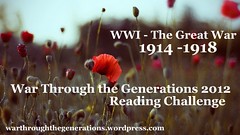
“‘Whenever you feel like criticizing anyone,’ he told me, ‘just remember that all the people in this world haven’t had the advantages that you’ve had.'” (page 5)
Carraway has his suspicions about Gatsby’s fortune, but eventually, his charisma wins him over and he goes beyond any of Gatsby’s friends in the end, demonstrating that true friendship has little to do with one’s background or wealth. Daisy is the great love in this novel, and while readers may not see her appeal, they must remember that she is seen through the eyes of Carraway, who already has expressed a bias against the wealthy and high social class since returning from the war. Fitzgerald has not set up a love triangle that is difficult to uncover, but the conclusion of that love triangle — really its more like a love square — is utterly tragic.
“‘Anyhow he gives large parties,’ said Jordan, changing the subject with an urban distaste for the concrete. ‘And I like large parties. They’re so intimate. At small parties there isn’t any privacy.'” (page 54)
In many ways, Gatsby has romanticized his time with Daisy and he hopes to rekindle what he lost when he was shipped off to fight in WWI. However, the question remains whether what he had with Daisy before the war was real, romanticized, or even imagined by a soldier looking for something to cling to in an effort to survive the horrors of war. Carraway is just as enigmatic as Gatsby, and while their initial circumstances differed in terms of riches, they both pursued the American Dream of success — albeit in different ways. These two characters are juxtaposed for a reason, and Fitzgerald leaves it up to the reader to determine why.
“Gatsby believed in the green light, the orgastic future that year by year recedes before us. It eluded us then, but that’s no matter — tomorrow we will run faster, stretch out our arms farther . . . And one fine morning –” (Page 189)
Fitzgerald’s writing was easy to understand, while there were moments where there were names dropped and mentioned in great paragraphs, if only to demonstrate the connectedness of the characters to high society and other “important” people. Those moments were not necessary given the conversations Gatsby had at his parties. The Great Gatsby by F. Scott Fitzgerald is an enduring look at a time when men and women were fully grasping at anything to improve their situation and earn their way in the world. However, there is a blissful disenchantment with this way of life by the end of the novel that will have readers questioning their dedication to the rat race and beating out the Joneses.
This is my 11th book for the 2012 New Authors Challenge.





